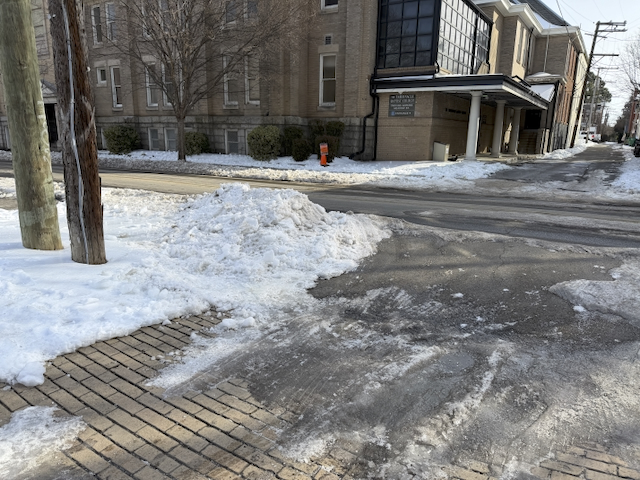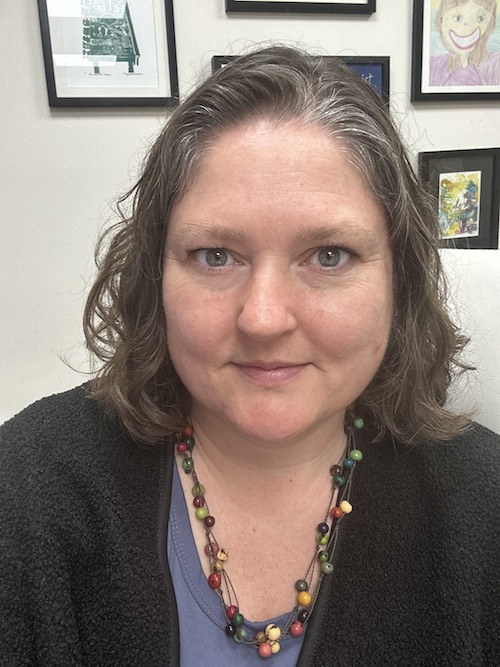We are in a moment of big transition at Tabernacle, one that invites deep discernment about who we are, where God is calling us, and how we navigate the challenges and opportunities in this chapter of ministry together.
We’re grateful for the wisdom of our friend Mark Tidsworth, founder of Pinnacle Leadership Associates, who has spent decades walking with congregations through similar seasons of redevelopment and renewal.
In his recent reflection, Five Initiators of Congregational Redevelopment, Mark names five dynamics that often surface when a church is on the threshold of transformation. His words are honest, hopeful, and deeply resonant for communities like ours. You can find the original post and more resources from Mark and his team at Pinnacle Leadership Associates.
Five Initiators of Congregational Redevelopment
Nov 11, 2025
“If you want to build a ship, don’t summon people to buy wood, prepare tools, distribute jobs, and organize the work, rather teach people the yearning for the wide, boundless ocean.” — Antoine de Saint-Exupery, quoted by Alan Hirsch in The Forgotten Ways: Reactivating The Missional Church, 2006.
I was talking with a minister whose daughter is a teacher in one of the schools taken over by the state due to its poor performance. A problem-solver, specialist principal was sent in to reform this school. This principal stayed a few years and then moved on. As we coach clergy and consult with congregations, we are finding many who are in similar circumstances to this school and its specialist principal. Unexpectedly, most pastors find themselves in redevelopment ministry contexts.
When redevelopment of a congregation is needed, how do we lead? Given the parable of the Sower and the Seed, we are not responsible for the growth of God’s kingdom. Instead, we are responsible for cultivating the soil and sowing the seed — still a substantial task. What nutrients are needed in the soil? What weather patterns and conditions are needed for the seed to grow? When renewal and redevelopment of a congregation happens, what are the ingredients in the mix?
Crisis. I wish this were not so. It appears that some level of crisis is a necessary ingredient in the soil for renewal to happen. Typical forms of crisis include conflict, after which mass exodus occurs, threatening the critical mass of the congregation. Finances can drop enough to threaten the employment of staff persons. Sometimes, even theological differences can drive congregational demise (though this is more rare than one might expect). These, and others, lead to congregational crises with fear and pain involved. As we work with congregations in many places, we observe that some level of crisis is needed to wake them to their need for renewal and redevelopment. Threats to survival, along with substantial fear, have a way of waking us to reality.
Acceptance. The first response organizations make when a crisis occurs and they are ready to get back on track is to try harder with what has worked before… improve the quality, work harder at what we do, strengthen our programs and people. These are well-intentioned efforts, and are effective, when your model is viable. When adaptive change is needed (when the model itself is no longer viable), then these efforts inevitably produce increased frustration. Perhaps this is a valley congregations must travel. Eventually they must realize that it’s the model itself, and become willing to accept that church-like-the-1950s will not happen again.
“Until three-quarters of your formal and informal leadership cadre is ‘honestly convinced that business-as-usual is totally unacceptable,’ your organization’s concerted effort to change is not ready to be launched.” — John Kotter, “Leading Change: Why Transformation Efforts Fail,” Harvard Business Review (March-April, 1995)
Compelling and Captivating Story. Fortunately we have one — the gospel of Jesus Christ. Congregations who engage in redevelopment must first rediscover their story. Do they have something to share? Do they have something the world needs? Is this story out of which they live captivating and compelling? If not, then the redevelopment work will be too difficult. If so, they have discovered the source of life. If so, they want to share this good news and engage in activities that bring wholeness to the world. They want to join God on mission in the world out of their gratitude for God’s presence in their lives. They want to build ships because they yearn for the wide, boundless ocean.
Commitment to Renewal and Redevelopment. Some congregations decide to close. When they can do this with dignity, they can bless their journey. Others though, redevelop. This is the “boot camp” season of congregational life. This is the time when people roll up their sleeves and make a go of it. To do this, commitment has to be high. Like John Kotter says in the previous quote, the pastor, church staff, and congregational leaders have to actively commit to renewing and redeveloping the congregation. There will be spiritual and emotional highs… and lows. So the commitment has to be there to sustain them through boot camp.
Urgency. It’s interesting to observe what drives urgency for the churches who redevelop. Often the driving factors don’t appear very “spiritual.” The congregation may be driven by the awareness they are dropping below a critical mass to sustain their facilities, staff, and programs (institutional fears). If this is where they are, and it motivates them to do ministry, then at least it’s a way to begin moving. When they do make progress, often they discover more sustaining and life giving motivation. In order to do the necessary renewal and redevelopment work, they have to be compelled by their sense of urgency to accomplish the mission.
Finding yourself in a renewal or redevelopment ministry? You are in good company these days. Fortunately, we are in luck. God specializes in renewal, through Christ.






